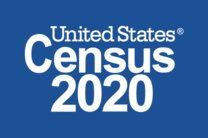PTA Leaders,
As news and information circulates rapidly regarding state and federal responses to critical K-12 issues in light of COVID-19, National PTA Government Affairs wanted to share an update on what we know regarding federal responses and legislation and National PTA’s positions. Please know the policy and administrative responses are rapidly occurring and changing regularly and we are doing our best to providing you with accurate and useful information.
As you likely have heard in the news, Congress is currently negotiating a third COVID-19 (Coronavirus) legislative package. National PTA is engaging regularly with congressional staff and fellow education partners to ensure that the critical needs of students, families and schools are addressed in this legislation. We are urging Congress to make sure students have strong and reliable digital access and tools, since remote learning will be reality for a while, access to nutritious meals, and the social and emotional support they need in this very stressful time.
National PTA positions
- National PTA does not support broad wavier authority for the U.S. Secretary of Education to waive requirements under the Every Student Succeeds Act (ESSA) and the Individuals with Disabilities Act (IDEA).
- The U.S. Secretary of Education currently has authority to waive various statutory and regulatory requirements covering the programs operated under the Every Student Succeeds Act (ESSA)
- National PTA supports an expedited wavier process for state education agencies from the U.S. Department of Education to waive required annual testing under ESSA.
- The U.S. Secretary of Education, Betsy DeVos just announced broad flexibilities for states to cancel testing during this national emergency.
National PTA Government Affairs is preparing a summary of recent legislative activity that we hope to share with you soon.
Below is a summary of wavier authority in the Every Student Succeeds Act (ESSA) and the Individuals with Disabilities Education Act (IDEA):
The Every Student Succeeds Act (ESSA)
Under current law, U.S. Secretary of Education has the authority to waive various statutory and regulatory requirements covering the programs operated under the Every Student Succeeds Act (ESSA). The main waiver authority is in Section 8401, which authorizes States and Indian tribes, as well as local educational agencies (through States), to apply for and receive waivers of any ESEA statutory or regulatory requirement, except in certain specified areas, under procedures set forth in that section. The provisions that may not be waived include, among others, those related to civil rights, the allocation of ESSA funds to States and local educational agencies, and the requirement that ESSA assistance supplement, and not supplant, State and local funding.
At this time, ED may not waive statutory or regulatory requirement related to:
- The allocation of ESSA funds to States, LEAs, or other grant recipients;
- ESSA maintenance-of-effort requirements;
- Comparability of services;
- The use of ESSA funds to supplement and not supplant State and local funds;
- The equitable participation of private school students and teachers in ESSA programs;
- Parental participation and involvement in ESSA programs;
- Applicable civil rights requirements;
- The requirement for a charter school under the ESSA Charter Schools Program;
- The prohibition against a State taking into consideration ESSA payments when determining an LEA’s eligibility for or receipt of State aid;
- Prohibitions against the use of ESSA funds for religious worship or instruction;
- Certain prohibitions against the use of ESSA funds for sex education; or
- Certain ESSA Title I-A school selection requirements.
In response to previous emergencies, such as Hurricanes Katrina and Rita, the 2008 Midwest flooding, and the 2010 H1N1 flu outbreak, ED has used this general authority to grant waivers to affected States. These waivers included, among others, allowing States to consider students displaced by natural disasters as a separate subgroup for Title I accountability determinations, extending the availability of certain ESSA funds, and allowing the exclusion of certain schools affected by the flu outbreak from the 95 percent assessment participation requirement under Title I.
The Individuals with Disabilities Education Act (IDEA)
The Individuals with Disabilities Education Act (IDEA) does not include a general waiver authority comparable to what exists under ESSA. However, IDEA Section 612(a)(18) permits ED to waive the Act’s State-level MOE requirement for one fiscal year if the Department determines that granting a waiver would be equitable because of exceptional or uncontrollable circumstances (such as a natural disaster or a precipitous and unforeseen decline in the State’s financial resources) and that the State meets the Act’s “supplement, not supplant” requirement. Note that ED does not have the same authority to waive IDEA’s local MOE requirement.
The IDEA “supplement, not supplant” language provides that States and LEAs must use IDEA funds to supplement the level of State, local, and other Federal funds expended for special education and related services for children with disabilities and in no cases to supplant those funds. However, ED may waive, in whole or part, the State-level requirement if a State provides clear and convincing evidence that all children with disabilities in the State have available a free appropriate public education under IDEA. This is unlike the situation under ESSA, where the law specifically prohibits ED from waiving supplement-not-supplant.
Jacki Ball | Director, Government Affairs
National PTA®
1250 N. Pitt Street
Alexandria, VA 22314
Alexandria, VA 22314








